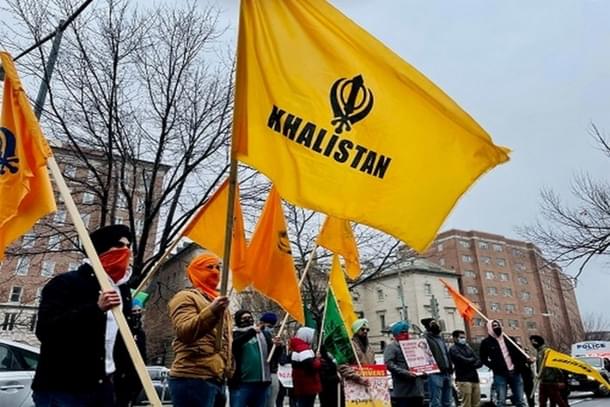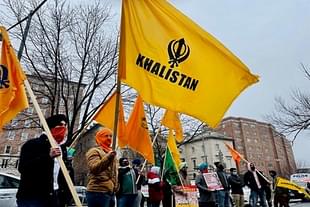News Brief
Canadian Diplomats Interfered In India's Internal Affairs, Granted Visas To Criminals Supporting Khalistan: Report
Swarajya Staff
Oct 23, 2023, 06:26 PM | Updated 06:57 PM IST
Save & read from anywhere!
Bookmark stories for easy access on any device or the Swarajya app.


Just a day after Foreign Minister S Jaishankar remarked that, 'more stuff will come out' about Canadian interference in India's internal affairs, reports have emerged indicating that Canadian diplomats were misusing their authority in various consulates across Chandigarh and other regions of Punjab.
According to a report by CNN-News18, the Canadian diplomats were granting visas to individuals with known criminal backgrounds who support the Khalistani movement.
This comes amid the ongoing dispute between India and Canada following the killing of Khalistani leader Hardeep Singh Nijjar.
The report asserts that Canadian diplomats have taken a lenient approach when issuing visas to individuals, even when aware of their criminal histories.
It claims that visas are being extended to bolster the Khalistan movement and strengthen its momentum.
It also suggests that Canadian diplomats have executed this strategy intentionally, with a clear purpose — to grant visas and facilitate the departure of specific individuals from India, including those involved in criminal cases.
“The Canadian diplomats have done this deliberately and the idea was very clear — to give visas to take certain individuals out of India. Even people those who were involved in cases were given visas and sent to Canada by these diplomats,” the report states.
Furthermore, Canada refused to co-operate with India in extradition proceedings and investigations concerning individuals who have sought refuge in Canada.
It also alleged that the Indian government possesses evidence of Canada's support for the farmers' protests in India.
Just a day ago, External Affairs Minister S Jaishankar stated that India possesses evidence of the Canadian government's interference in Indian affairs, and hinted at intensifying the diplomatic offensive against Canada, stating that 'more stuff will come out'.
Jaishankar emphasised the principle of "parity" concerning the number of diplomats from each country, as specified by the Vienna Convention, a relevant international treaty.
However, he clarified that India invoked the principle of parity due to its concerns about continuous interference in Indian affairs by Canadian personnel, which wasn't widely publicised.
“There’s this whole issue of parity that the size of how many diplomats there are of one country versus how many diplomats there are of the other country. Parity is very much provided for by the Vienna Convention, which is the relevant international rule on this,” Jaishankar said.
“But in our case, we invoked parity because we had concerns about continuous interference in our affairs by Canadian personnel. We haven’t made much of that public. My sense is over a period of time more stuff will come out and people will understand why we had the kind of discomfort with many of them, which we did”, he added.
Tensions between India and Canada escalated when the Canadian government recalled 41 diplomats, just ahead of India's imposed deadline, after which they risked losing their diplomatic immunity.
India had sought "parity" by reducing the number of Canadian diplomats in the country from 62 to 21. Trudeau labeled India's actions a violation of the Vienna Convention.





